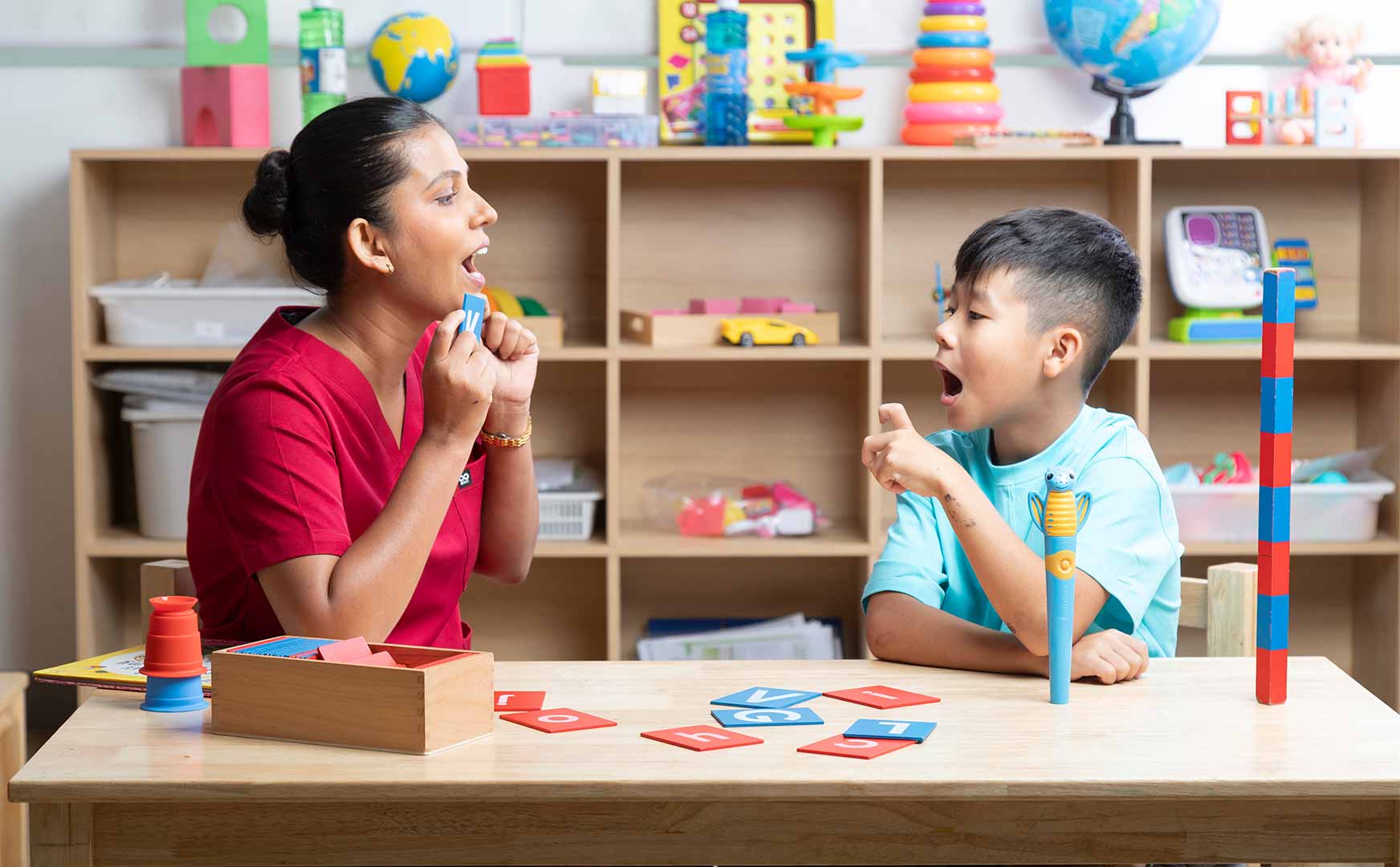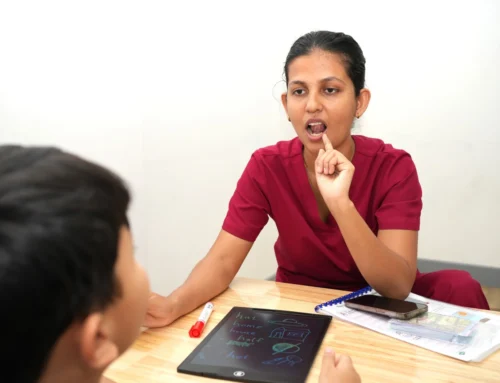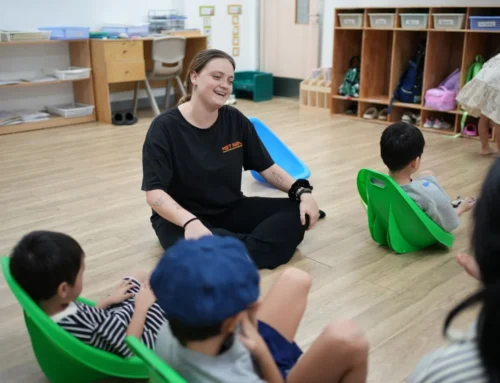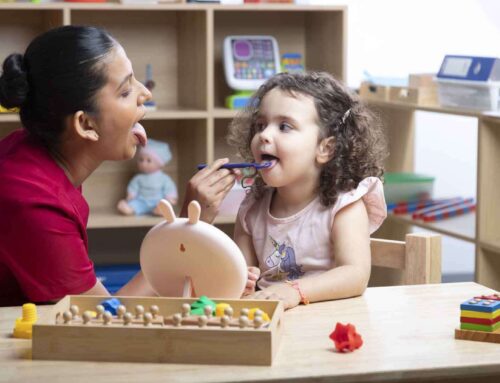Children with Attention-Deficit/Hyperactivity Disorder (ADHD) often experience challenges that go beyond attention and behavior. Many also face speech and language difficulties that affect how they express themselves, follow directions, and interact socially. At OrbRom Center in Phnom Penh, we understand that supporting a child with ADHD requires more than academic instruction — it involves targeted communication strategies that nurture focus, confidence, and connection.
In this article, we’ll explore how speech therapy for children with ADHD strengthens communication, improves self-regulation, and helps young learners thrive in both school and social settings.
Understanding the Link Between ADHD and Communication
Children with ADHD may find it difficult to organize thoughts, listen carefully, or wait their turn in conversations. These communication issues are not due to laziness or defiance but stem from neurological differences that affect executive functioning — the brain’s control system for attention, planning, and self-regulation.
Common speech and language challenges for children with ADHD include:
-
Trouble staying on topic during conversations
-
Difficulty following multi-step instructions
-
Speaking too quickly or interrupting others
-
Limited vocabulary or poor narrative skills
-
Challenges with reading comprehension or written expression
At OrbRom Center, our speech-language pathologists work closely with occupational therapists and teachers to create a consistent, structured environment where children can develop both communication and focus.
How Speech Therapy Helps Children with ADHD
1. Improving Listening and Comprehension Skills
Speech therapy sessions at OrbRom Center focus on active listening — teaching children how to attend to key words, recognize tone, and process meaning. Therapists use short, engaging activities that match a child’s attention span, gradually increasing complexity as the child’s focus improves.
Interactive tools like picture cards, role-play, and story-based exercises encourage comprehension while keeping sessions fun and dynamic. These methods align with our Speech Therapy Programs that emphasize personalized, play-based learning for every child.
2. Enhancing Expressive Language and Clarity
Many children with ADHD struggle to express thoughts clearly or organize ideas before speaking. Through targeted speech-language strategies, therapists teach children to slow down, think before responding, and structure their sentences logically.
Activities might include storytelling, sequencing games, and social scripts that prepare children for real-world interactions — from classroom participation to playtime conversations.
Parents often notice improvements not only in language but also in confidence and emotional regulation, as clear communication reduces frustration and misunderstandings.
Learn more about our Speech-Language Services designed to build expressive communication and self-awareness.
3. Developing Social Communication and Turn-Taking
ADHD can make it challenging for children to wait their turn, read social cues, or adjust tone and volume during speech. Our therapists use social stories, group play, and role-play scenarios to help children practice appropriate conversation skills.
These skills are essential for building friendships and maintaining positive relationships with teachers and peers — a key goal in every Special Needs Intensive Intervention plan at OrbRom Center.
4. Supporting Executive Functioning Through Speech Therapy
Speech therapy doesn’t just address pronunciation or vocabulary — it strengthens the executive functioning skills that children with ADHD need for daily life.
By working on sequencing, categorization, and planning language tasks, children learn to think ahead, organize ideas, and communicate intentions more effectively. These cognitive-language connections are reinforced through collaboration with our Occupational Therapy team, ensuring a holistic approach to each child’s development.
Integrating Home and School Support
At OrbRom Center, we believe that progress continues beyond therapy sessions. Our therapists provide parents and teachers with simple, evidence-based strategies to use at home and in classrooms — such as visual cues, checklists, and positive reinforcement systems.
These everyday supports empower children to apply their communication skills in real settings, from following school routines to completing homework independently.
For children enrolled in our Preschool Program or Assessments services, speech therapy is often integrated into broader learning plans, ensuring consistent communication development across all environments.
Why Speech Therapy Matters for ADHD in Cambodia
Access to quality speech and language therapy is still growing in Cambodia, and awareness of ADHD-related communication needs is limited. That’s why centers like OrbRom in Phnom Penh play a vital role in bridging the gap — offering professional assessments, family education, and personalized interventions tailored to each child’s strengths and challenges.
Our mission is not just to help children speak better, but to empower them to learn, connect, and thrive within their communities.
Conclusion
Speech therapy for children with ADHD provides more than words — it builds the foundation for listening, learning, and lifelong communication. At OrbRom Center in Phnom Penh, we combine clinical expertise with compassionate care to help every child reach their full potential.
If you suspect your child struggles with focus or expressive language, early intervention can make all the difference. Contact OrbRom Center today to schedule an assessment and discover how our multidisciplinary team can support your child’s communication and learning journey.
We are the only Preschool specialized on children with special needs in PhnomPenh.
- Internationally qualified teachers
- Cambodia’s largest sensory room
- Outdoor swimming pool
- Covered outdoor playground
📞 Phone: 077.455.993
Telegram Link: https://t.me/OrbRom





